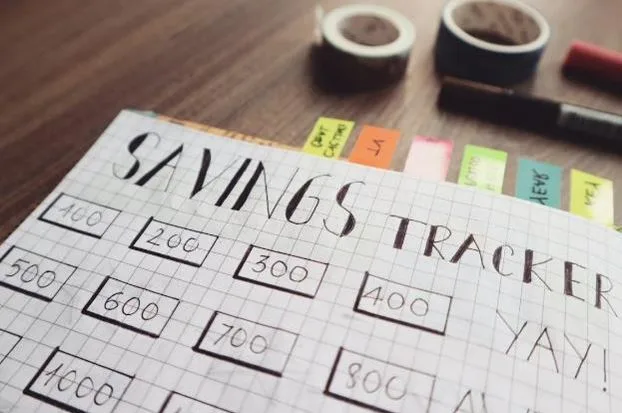Personal Finance 101: Everything You Should Know
Do you ever feel like your money disappears the moment it hits your bank account? You’re not imagining things. Between rising prices, confusing financial tools, and constant economic shifts, managing your personal finances can feel like trying to plug a leaky faucet with bubble gum. In this blog, we will share the essential things you need to know to take control of your financial life.
Understanding Where Your Money Actually Goes
One of the first steps in personal finance is simply knowing how you spend. It’s easy to underestimate how much goes toward delivery fees, subscriptions you forgot about, or the slow creep of everyday inflation. You might have a budget in your head, but if it’s not written down or tracked, it’s not really a budget.
The shift to cashless living has made this even trickier. With a few taps on your phone, you can order groceries, subscribe to another streaming service, or split a dinner bill with friends without seeing a single dollar. That convenience makes it harder to feel the impact of your spending in real time. But your balance notices—especially now, when interest rates and consumer prices are playing a long, complicated game of tug-of-war.
Having a clear understanding of income versus expenses lays the groundwork for better decisions. Whether you’re working with a spreadsheet or a financial app, tracking where your money goes is the only way to figure out how to make it go further. And that’s where things like emergency funds, savings goals, or even debt reduction strategies start to make sense.
Sometimes that clarity leads to borrowing decisions. Whether to handle an unexpected car repair or consolidate high-interest debt, a personal loan can offer temporary breathing room when used responsibly. What matters is knowing the terms, understanding your repayment capacity, and viewing the loan as part of a bigger financial picture rather than a quick fix. Loans aren’t just about access to cash—they’re about trust, timing, and knowing what you’re getting into.
Building a Budget That Works in Real Life
Once you know where your money goes, you can start telling it where to go instead. Budgeting isn’t about restriction—it’s about intention. And in today’s economy, where a trip to the grocery store can feel like negotiating with pirates, you need a plan that can flex without snapping.
A good budget should cover needs, leave room for wants, and prepare for the unknown. That means accounting for fixed expenses like rent, utilities, and insurance first. Then you make room for variable costs—groceries, gas, social outings—and set aside a portion for savings or debt payments. The key isn’t perfection. It’s consistency. Your budget should be something you update and adjust, not a rulebook you break once and abandon.
It also helps to build in buffer zones. Treating every dollar as spoken for sounds smart in theory, but in practice, life throws curveballs. If your budget is so tight that one vet bill or parking ticket sends it into a tailspin, it’s not sustainable. Allowing for a little unpredictability helps you stay on track without burning out or giving up entirely.
The Role of Credit in Your Financial Story
Credit isn’t just about getting approved for a loan. It’s a measurement of your financial habits, and it plays a big role in shaping your future opportunities. Your credit score can affect the interest rate on your mortgage, your ability to rent an apartment, or even whether a job offer goes through. Like it or not, it’s part of your financial reputation.
Building credit takes time, but it starts with simple behaviors. Paying bills on time, keeping credit card balances low, and not opening too many accounts at once all help. So does checking your credit report regularly. Mistakes happen—accounts get reported incorrectly, old debts linger longer than they should—and those errors can quietly damage your score until they’re fixed.
Using credit wisely also means not relying on it for things you can’t afford. It’s tempting to use a credit card to bridge a shortfall, but unless you can pay it off quickly, the interest adds up fast. Ideally, credit should be a tool that supports your budget, not a lifeline you rely on each month.
Saving Like Your Future Depends on It—Because It Does
In a time when financial stability feels harder to reach, saving money might sound like a luxury. But it’s also one of the few things that creates real peace of mind. An emergency fund isn’t just practical—it’s powerful. Knowing you have a few months of expenses set aside means fewer sleepless nights when something breaks, bills pile up, or a paycheck gets delayed.
The trick is to start small. Saving 10% of your income might not be realistic right away, but $25 a week adds up over time. Set up automatic transfers so saving happens without effort. And once you hit your emergency fund target, shift your focus to longer-term goals—like travel, homeownership, or retirement.
Speaking of retirement, it’s never too early to start. The earlier you begin contributing to a retirement account, the more time your money has to grow. Compounding interest does the heavy lifting if you give it enough time. Whether it’s through a workplace plan or an individual account, the habit of saving for your future is more important than the amount—at least to start.
Making Smart Choices in a Noisy Financial World
The personal finance space is full of advice, and not all of it is helpful. One podcast says to invest in crypto. A TikTok influencer tells you to live off rice and beans. Your uncle insists gold is the only safe bet. It’s overwhelming. And while new tools and platforms have made it easier to manage money, they’ve also made it easier to get distracted by strategies that aren’t relevant to your goals.
The best financial decisions are the ones that fit your life. Not someone else’s spreadsheet, not a viral trend, but your actual income, priorities, and risks. It’s okay to ignore the noise and stick to the basics: spend less than you earn, save consistently, borrow carefully, and plan for the future. Those habits don’t get likes, but they do get results.
It’s also okay to ask for help. Financial literacy isn’t something most people are born with. Whether you use a budget coach, a financial advisor, or a trusted mentor, having someone walk through the details with you can provide clarity and confidence.
In a world that constantly tells you to buy more, spend faster, and worry later, managing your money with intention is almost rebellious. But it’s also one of the most freeing things you can do. Personal finance isn’t about being perfect—it’s about being prepared. And when you start thinking of your money as a tool rather than a trap, that’s when things really begin to change.







